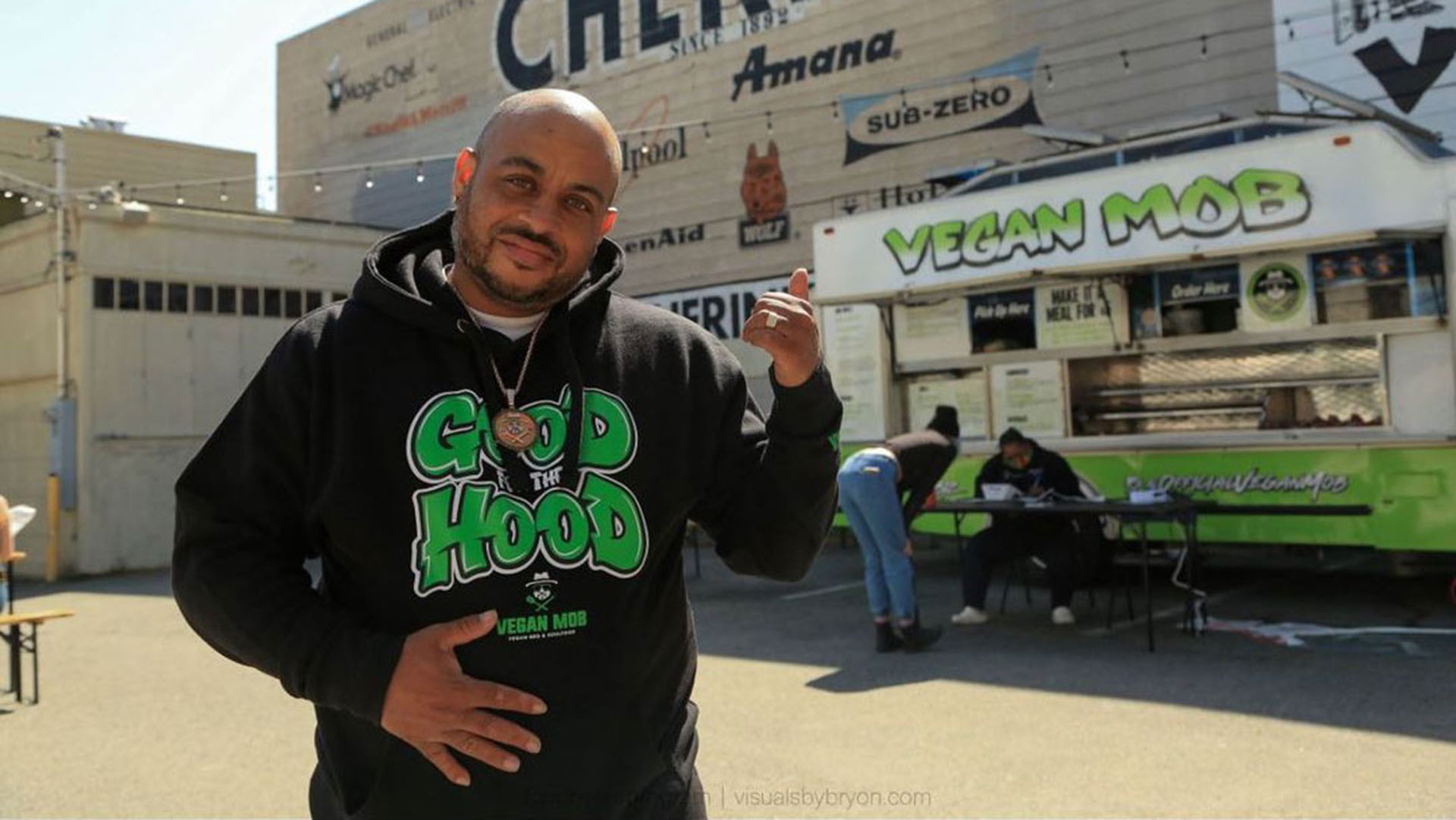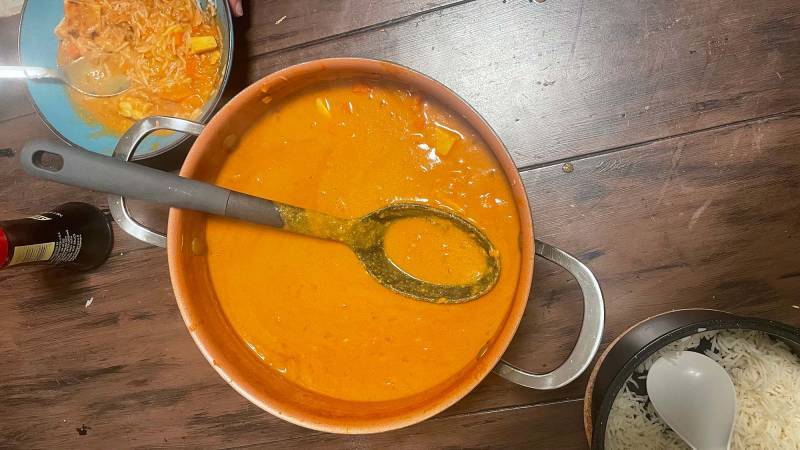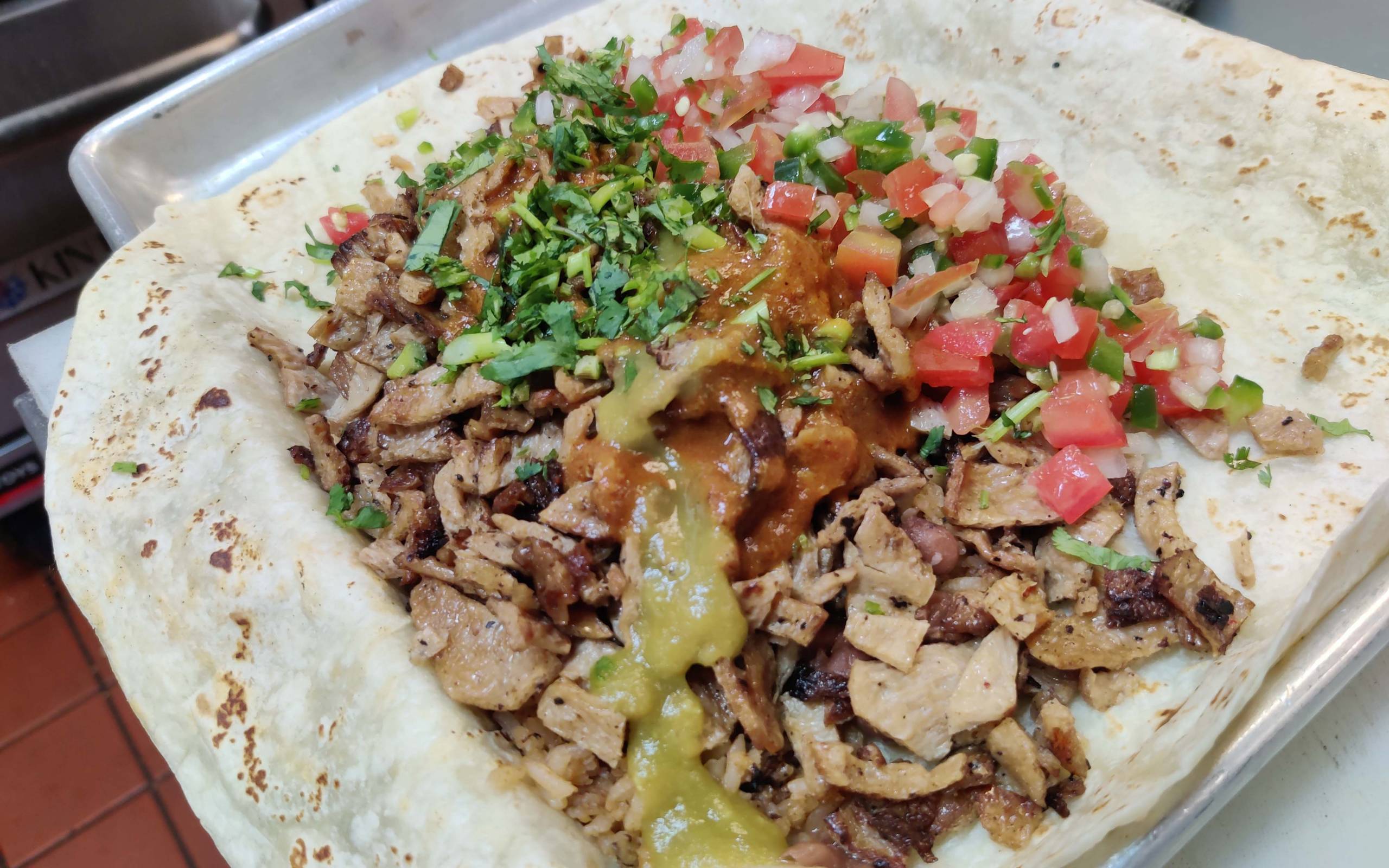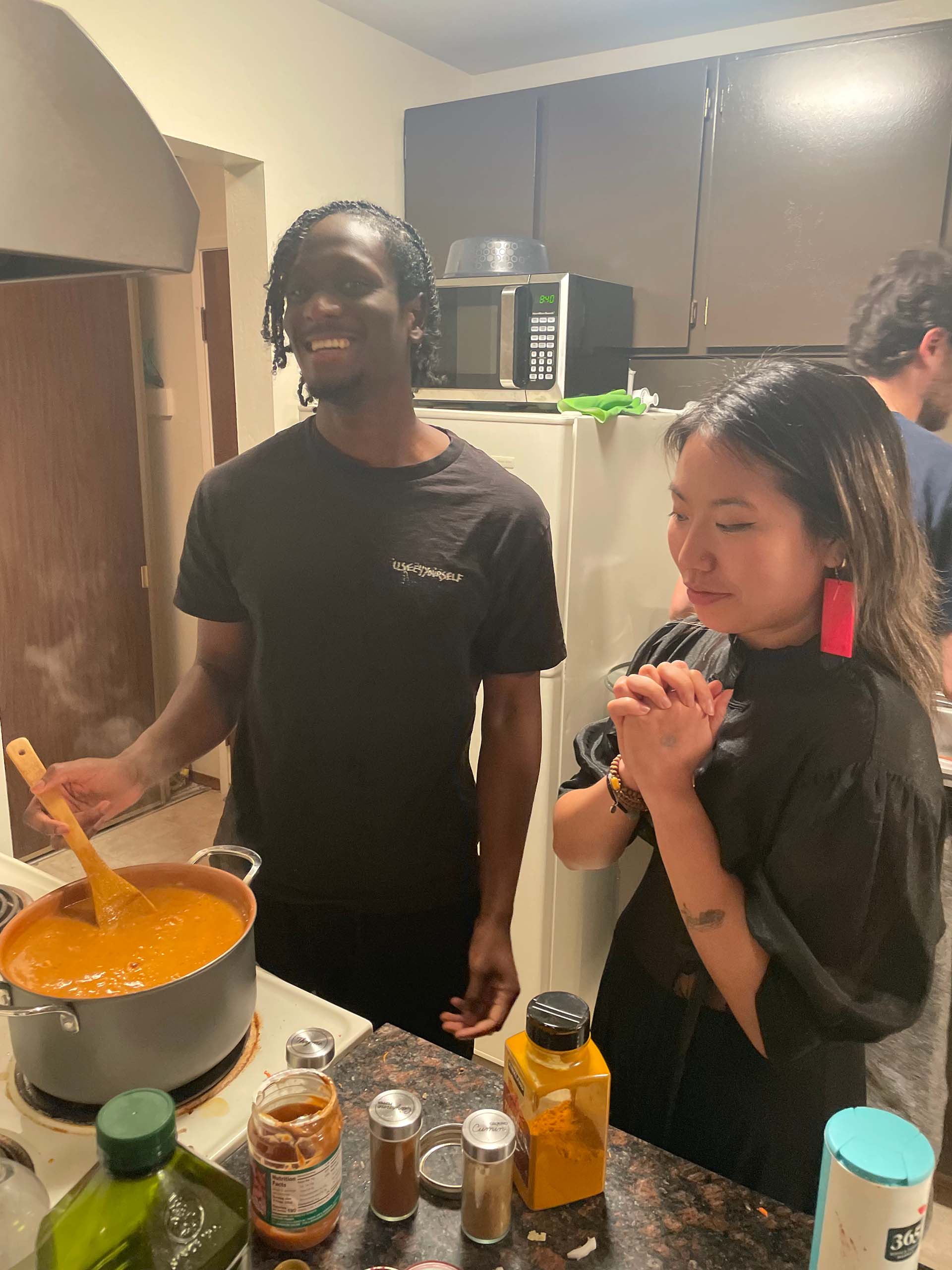A
bout two years ago, I went to my first vegan restaurant in the Bay. I was so excited to walk around Lake Merritt with my date, Kai, that I commuted one hour from the Mission and responded enthusiastically to her suggestion of lunch at Vegan Mob — even though I don’t like vegan food. Or I didn’t think I did, anyway.
It was my first time visiting Oakland, and its village charm and conspicuous Blackness made me feel happily nostalgic for my hometown back in Connecticut. By the time we approached the quaint lime-green building, I practically forgot we were going to a vegan restaurant. It helped, too, that Vegan Mob’s lineup of plant-based burgers and barbecue plates didn’t look like any other vegan food I’d seen. Reading the menu, I fantasized about the brisket and ribs from my favorite soul food restaurants.
Over plates of Impossible Burgers and candied yams, Kai and I joked around and recounted our childhoods. It was only after the meal, when she asked how I liked the vegan meat, that I began to consider the question. I was delighted but a little disoriented. I knew I had not eaten animal meat, but nothing about the meal felt vegan either. I appreciated the lightness of the mushroom burger patty, and just how tasty and everyday all of the food was.

Prior to this, my most salient experiences with vegan food were from the dinner parties my white, effective-altruist friend hosted during college. The tofu in the chickpea curry he cooked was always watery, and I pushed chunks of it around my bowl more than I ate it. Most of our mealtime conversations were about the self-sacrifice needed to create a more environmentally, racially and morally just world.
Like a good kid forcing himself to swallow his broccoli, I endured those meals because I believed the discipline was healthy and the discussions were thought provoking — not because the food actually tasted good. I saw veganism as a form of liberal asceticism, where taste and pleasure were less important than the morality of one’s diet. That all the vegans I knew were ardently political, and that the few restaurants they brought me to were absent of spice, supported this viewpoint.




